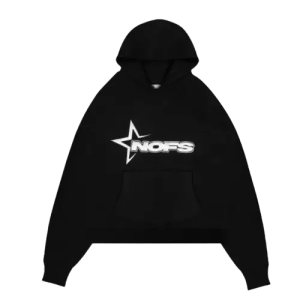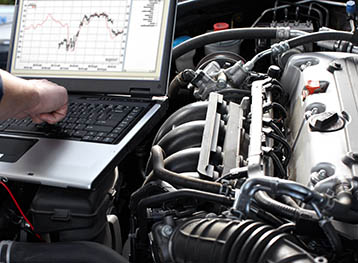In today’s fast-paced world, vacuum-sealed machines have become indispensable kitchen appliances for preserving food and extending its shelf life. By removing air and sealing food in airtight bags, these machines help lock in freshness and reduce waste. Whether you’re a professional chef or a home cook, a vacuum sealer machine can be a valuable addition to your kitchen, ensuring your ingredients stay fresh for longer.
This blog post explores the key features to consider when purchasing a vacuum sealer, helping you make an informed choice. Several factors can greatly influence your decision, from the type of sealing mechanism to the versatility of the machine. Understanding these features will ensure you select a model that aligns perfectly with your culinary needs and lifestyle.
Varieties of Vacuum Sealer
When looking for a vacuum sealer, it’s important to understand the available types. There are primarily two categories: vacuum heat sealer and standard vacuum sealers. A vacuum heat sealer is typically more versatile and capable of sealing a wider range of bags, including plastic, mylar, and other specialized materials.
This type of sealer is perfect for those looking to preserve various food types or other non-food items. On the other hand, standard vacuum sealers are usually more user-friendly, simpler to operate, and ideal for basic food storage tasks. They are typically more budget-friendly, making them suitable for anyone new to vacuum sealing. Consider what types of bags you’ll need to use, how often you plan on using the machine, and whether you need a more advanced option. Your intended usage will directly impact the type of vacuum sealer that is best for you.
Sealing Effectiveness
The effectiveness of a vacuum sealer is determined by its ability to create a strong, airtight seal. This is influenced by the quality of the sealing strip and the machine’s ability to regulate temperature accurately. If the seal is too weak or inconsistent, air can seep in, compromising food preservation. Look for models that offer adjustable settings to accommodate different types of foods. For instance, delicate items like soft fruits or seafood may require lower heat settings to avoid crushing.
Conversely, tougher foods like meats or vegetables need a stronger, more durable seal. A good vacuum sealer will produce a consistent, reliable seal every time, ensuring that your food remains sealed tightly without air leakage, thus maintaining its freshness for much longer. Machines with precision temperature control and high-quality sealing strips perform better over time.
Importance of Suction Power
When choosing a vacuum sealer, suction power is vital in determining the machine’s overall performance. Suction power refers to the machine’s ability to remove air from the bag, which is crucial for creating a tight, effective seal.
Here are some key points to consider about suction power:
- Measured in Watts and Hg: The vacuum motor’s suction power is typically measured in watts, and vacuum strength is often expressed in inches of mercury (inHg). A higher value in both metrics indicates better suction capability.
- Enhanced Sealing Efficiency: A vacuum sealer with higher suction power removes more air from the bag, resulting in a more effective seal. This prevents air from entering the bag, which helps preserve food’s freshness and extend shelf life.
- Preventing Food Spoilage: With better suction power, the vacuum sealer can tightly seal the bag, avoiding exposure to air and moisture, which are the main contributors to food spoilage.
- Versatility: Adjustable suction levels allow users to customize the vacuuming process based on the food’s texture and moisture content. Whether sealing dry or wet foods, the ability to adjust suction ensures optimal results for various types of items.
In summary, selecting a vacuum sealer with sufficient suction power is essential for maintaining the quality of your stored foods. It keeps food fresh and provides greater versatility for different sealing needs.
User-Friendliness
A vacuum sealer should be easy to operate, even for first-time users. User-friendly models are equipped with intuitive controls and easy-to-read labels. Features like one-touch operation, which allows you to seal bags with minimal effort, are ideal for beginners. A digital display can also make it easier to navigate different settings and ensure that you’re applying the correct sealing method for each food type. Additionally, consider a machine that offers simple maintenance options.
For example, machines with removable drip trays allow quick and easy cleaning after each use. Some models also include pre-programmed settings for different food types, further simplifying sealing. If you plan on using the vacuum sealer regularly, it’s worth investing in a model with straightforward operations and minimal setup required. The more user-friendly the machine, the more efficient your food preservation process will be.
Portability and Storage Considerations of Vacuum and Seal Machine
When selecting a vacuum sealer for a kitchen with limited counter space, both size and weight must be considered to ensure convenience and efficient use.
Compact and Lightweight Options
For kitchens with limited space, opt for compact, lightweight vacuum sealers. These smaller models make them easier to store when not in use. They can be tucked away in a drawer or placed on a shelf without taking up much room, ideal for people who need to maximize their counter space.
Portability for On-the-Go Use
If you plan on taking your Vacuum and Seal Machine on trips, such as camping or to a friend’s house for meal prep, portability becomes a key factor. Choose machines with a slim profile and built-in handles for easy carrying. A lightweight design ensures you can move the sealer around without hassle to a different room or location.
Storage Considerations
Another important factor is how the vacuum sealer fits into your kitchen storage. Some models are designed for easy storage in compact spaces, while larger machines may need to remain on the counter. Please choose a model that suits your space, allowing you to easily access it when required but store it out of sight when not in use. This flexibility is especially valuable in kitchens with limited counter space.
By choosing a vacuum sealer that balances size, weight, and portability, you can enjoy both convenience and functionality space-efficiently.
Durability and Build Quality
The durability of a vacuum sealer is influenced by the materials used in its construction. Made from stainless steel, the machine is durable and can withstand frequent long-term use. Plastic models may be lighter and more affordable, but they may also wear out faster, especially if used regularly. Consider how often you plan to use the vacuum sealer when assessing durability. For heavy users, a machine with a strong, durable build is crucial to ensure reliable, consistent performance over time.
Additionally, check for manufacturer warranties that offer peace of mind regarding the machine’s longevity. A vacuum sealer with a robust build and high-quality components will provide years of service without frequent repairs. It’s also important to look for seals and components built to withstand the repetitive motion of sealing and vacuuming.
Compatibility with Bags
One of the most important factors to consider when purchasing a vacuum sealer is its compatibility with different types of bags. Some machines work only with specific brands of bags, limiting your options and increasing ongoing costs. Look for models compatible with various bag types, including generic bags and rolls.
A machine that can accommodate both pre-made bags and roll-style bags offers more flexibility and allows you to customize the bag size for different portions. If you often seal large quantities of food, a machine that works with larger bags is a plus. Additionally, ensure that the vacuum sealer can handle various bag thicknesses, as some foods require thicker bags to ensure a proper seal. This versatility will allow you to use different bag types without worrying about compatibility.
Additional Functionalities of Vacuum Heat Sealer Machine
When choosing a vacuum sealer, considering extra features beyond basic sealing is essential for maximizing its usefulness. Some advanced models come equipped with moist/dry settings, allowing you to switch between wet and dry foods easily. This ensures that your sealing process is tailored to the type of food, preserving freshness and quality.
Marinate Mode for Speedy Flavor Infusion
One of the most convenient features is the marinate mode. This function draws air out of the bag, accelerating the marinating process and allowing the marinade to penetrate the food quickly. This is perfect for busy cooks who enjoy marinated dishes without waiting overnight.
Canister Attachments for Extra Flexibility
Another valuable feature is the canister attachment, which lets you seal containers and bags. This is ideal for preserving liquids or delicate items that can’t be sealed in traditional vacuum bags.
Custom Bag Cutting
Many Vacuum Heat Sealer Machine come with built-in bag cutters, making it easy to cut custom-sized bags. This eliminates the need for additional tools and ensures you get the right size bag for each sealing task.
Pulse Vacuuming for Delicate Items
Pulse vacuuming allows for gentler suction, ideal for sealing delicate foods or items that may be crushed by regular suction. These features enhance the versatility and efficiency of your vacuum sealer, making it a more valuable tool in your kitchen.
Conclusion
In conclusion, when purchasing a vacuum sealer, it’s crucial to consider sealing effectiveness, suction power, user-friendliness, and durability. The machine’s compatibility with various bags, additional functionalities, and portability are key features that can influence your decision. Whether you’re looking for a simple, budget-friendly model or a high-performance machine with advanced features, understanding your specific needs and preferences will help you make an informed choice. A vacuum sealer machine can significantly enhance food preservation, reduce waste, and improve meal preparation, making it a valuable investment for any kitchen.
FAQs
What is the difference between a Vacuum Sealer Machine and a standard one?
A Vacuum Sealer Machine uses heat to seal different materials, such as Mylar bags and plastic, offering more versatility. On the other hand, a standard vacuum sealer is simpler, typically used for food preservation, and more budget-friendly.
How can I ensure a strong seal with my vacuum sealer?
Look for a machine with adjustable sealing settings and consistent temperature control. Machines with quality sealing strips and effective sealing mechanisms are key to preventing air from entering the bags.
What suction power is best for food preservation?
A vacuum sealer with higher suction power, measured in wattage or inches of mercury (Hg), is ideal. More suction power ensures a tighter seal, crucial for maintaining food freshness for longer periods.
Are vacuum sealer easy to use?
Many vacuum sealer feature one-touch operation, digital displays, and intuitive controls, making them beginner-friendly. Look for models with clear labelling and easy-to-follow instructions.
Do I need special bags for a vacuum sealer?
Not necessarily. Many machines are compatible with various types of bags, including generic ones. However, some models may be restricted to specific brands, so checking compatibility before purchasing is essential.
| Related Business Listings |
| Contact Directory |
| Local Business Profiles |
Tags: Vacuum Sealer Machine



